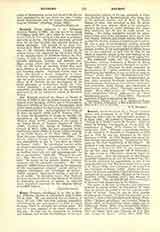

Bauny, ETIENNE, theologian, b. in 1564 at Mouzon, Ardennes, France; d. December 3, 1649, at Saint Pol de Leon. He was admitted into the Society of Jesus, July 20, 1593, and after teaching humanities and rhetoric he was promoted to the chair of moral theology which he occupied for sixteen years. He was for a time superior of the Jesuit residence at Pontoise. So high was his reputation for learning and holiness, that he had the confidence of the most distinguished prelates of his age, especially of Francois Cardinal de la Rochefoucauld, who chose him as his spiritual director, and of Rene de Rieux, Bishop of Leon, who entrusted to him the settlement of the most delicate affairs of his episcopate. Bauny’s knowledge of moral theology was singularly profound, but he was in many points too lenient. His undue indulgence excited the pharisaical indignation of the Jansenists, and it was to him that Pascal, Arnauld, and others turned, when they accused the Society of Jesus of teaching lax morality. He was a man of extraordinary severity towards himself, a skillful guide of souls, full of charity towards sinners, prudent in the management of affairs; hence we are not surprised to read that he died in the odor of sanctity, almost in the very exercise of his apostolic ministry, at the advanced age of eighty-five.
His published works are: (I) “Constitutiones Synodales dioecesis Leonensis, a Renato de Rieux Episcopo Leonensi promulgatae Paulipoli in Leonia” (Paris, 1630); (2) “Pratique du droit canonique au gouvernement de l’Eglise, correction des moeurs, et distribution des benefices, le tout au style et usage de France” (Paris, 1634); (3) “De Sacramentis ac Personis Sacris, earumque dignitate, obligationibus ac jure, juxta sacrarum litterarum testimonia, SS. Patrum sententias Canonum ac Conciliorum sanctiones, cum summariis, indite duplice, uno tractatuum et quaestionum, rerum altero. Theologiae moralis pars prima” (Paris, 1640) in fol.; (4) “Tractatus de censuris ecclesiasticis” (Paris, 1642), in fol.; (5) “Nova beneficiorum praxis.” (Paris, 1649). The second and third of these works are on the Index.
T. B. BARRETT

